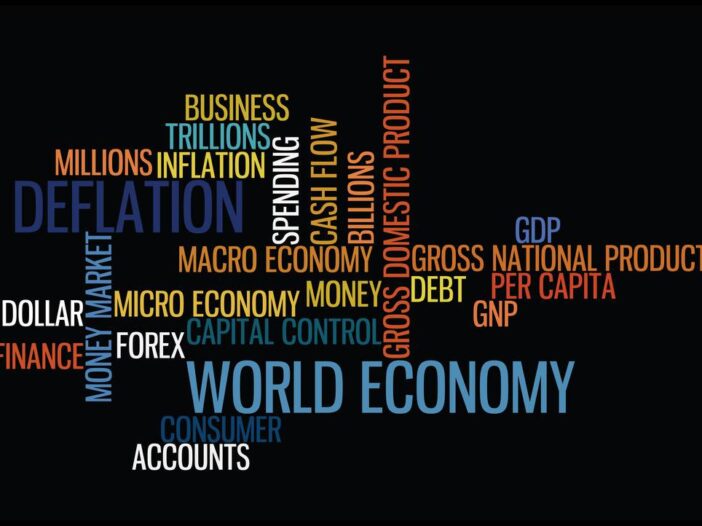Is China facing a demographic problem that may be even worse than the impact of the pandemic, high debt, and slowing global growth?
China is facing the greatest demographic collapse in the history of the world. Its replacement birth rate may be as low as 1.0 children per woman of child-bearing age. The replacement birth rate that maintains a constant population is 2.1 children. A birth rate higher than 2.1 is needed to grow a population.
China’s population is not only collapsing, but also ageing. This will result in hundreds of millions of octogenarians (or older) with a high likelihood of having Alzheimer’s disease, Parkinson’s disease, and dementia. Tens of millions more will be heavily involved in elder care, which is a low-productivity activity.
This will leave a much smaller group to provide workers for Chinese manufacturing and technology. The demographic collapse will lead to higher wages for prime-age workers, which will erode China’s advantage in unit labour costs. The damage to the Chinese economy will be so severe as to constitute a threat to the legitimacy of the Communist Party of China. Internal social disorder is another likely outcome.
Of course, the economic damage from the demographic time bomb will not be confined to China. The developed world and most developed economies are facing the same issue. Even the Sub-Saharan African countries with higher birth rates today are rapidly converging on rates below 2.1.
The result will be global cost-push inflation as fewer workers demand higher wages. This inflation will not emerge in the next two years but will be a feature of the global economy for decades beginning in the mid-to-late 2020s.
How to Survive Australia’s Biggest Recession in 90 Years. Download your free report and learn more.
Which assets will be on the rise despite slow growth and economic adversity?
Treasury notes, gold, land, residential real estate, agriculture and other natural resources, and artificial intelligence should all perform well. A two-year note, or a five-year note will provide less volatility.
Bitcoin reached new heights this year. Are cryptocurrencies a good alternative investment? Or are they overrated?
In my view, cryptocurrencies are not investments. They are a form of gambling. There are winners and losers, but no net wealth is created. A panic-style collapse in the not-so-distant future is likely.
Bitcoin [BTC] doesn’t function very well as a store of value; if you want to make it a speculative side bet, you can do that, but it’s not very good as a store of value. And because it’s not a good store of value, it’s also not a good unit of account. I hate to be running a corporation, keeping my books in bitcoin. You would have to reissue your financial statements popping up on a daily basis.
In the post-COVID era, what are the true risks for the financial system and what can savvy investors do to survive or even prosper during a time of unrivalled turbulence?
Cash is a good asset because it reduces volatility in a portfolio and provides the ability to buy assets at bargain prices when asset prices in stocks and other categories collapse. Gold will preserve wealth in all states of the world and will increase in value in the case of a financial panic. Oil and natural gas plays could be worth considering because wind, solar, and hydropower will not grow fast enough to meet real energy needs of the future.
Geographically, where will world economic growth come from in 2021 and after?
Turkey is positioned to do well because it has a large and relatively well-educated population. India is another attractive opportunity because its population is not as old as China’s, and it has a more flexible market system and a more creative technology industry.
There are also good growth opportunities in Sub-Saharan Africa, including Nigeria and Kenya. Russia will do well because it has ample oil, natural gas, and gold. Taiwan is another attractive market because of its dominance in semiconductors.
The biggest problems in developing economies are corruption, bribery, and unstable political governance. One way to mitigate these problems is to invest in giant global companies such as Chevron and Volkswagen that have the resources to resist the impact of corruption.
What are the biggest risks and challenges for the world economy in 2021 and after? What kind of a world economy should we expect ‘after the dust settles?’
The point is that the dust will not settle for 30 years. We are not going back to normal, and we are not going back to the pre-2020 world. Many facets of the economy and society will be quite different for a long time to come. The biggest risks going forward are war and adverse demographic trends.
I hope you have enjoyed my recent editions of The Daily Reckoning Australia. I have tried to cover some of the most important FAQs on topics from central banking to the pandemic, demographics, emerging markets, gold, and more.
Understanding these answers and connecting the dots for the bigger picture could greatly benefit you as an investor.
Regards,
 |
Jim Rickards,
Strategist, The Daily Reckoning Australia
PS: Our publication The Daily Reckoning is a fantastic place to start your investment journey. We talk about the big trends driving the most innovative stocks on the ASX. Learn all about it here.

